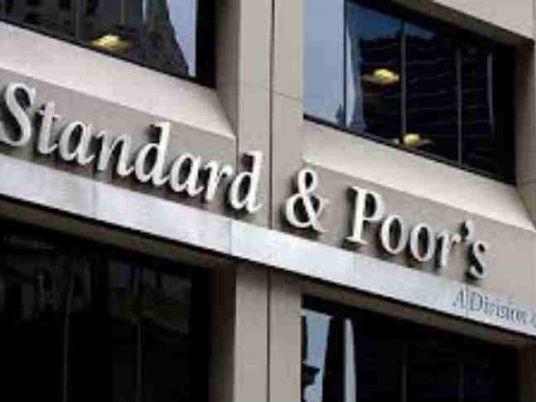2009 was a brutal economic year for most of the world, with markets in turmoil, mass layoffs and the specter of regional finance hub Dubai collapsing into the sea. But in Egypt, the story wasn’t quite so dire: as 2009 wound to a close, Egypt’s economic architects sounded relieved, quick to point out how the country had survived the global financial storm.
Indeed, there was some damage. Across the board, crucial economic indicators went in the wrong direction. But the overall theme for 2009 might be summed up in one sentence: “That wasn’t so bad.”
A fundamental irony lies at the heart of the apparent economic resiliency: Egypt, it seems, was protected by the comparative primitiveness of its economy. The country simply isn’t economically connected enough to have suffered the ripple effects that rocked thoroughly globalized markets.
“A lot of this crisis is due to banks and credit, and credit isn’t a big deal here,” said one researcher at a major Cairo financial house, speaking on condition of anonymity. “It’s still primarily a cash economy. If banks get more cautious about lending, everything still carries on. You have a large informal economy that just isn’t being affected.”
Economic growth slowed to below 5 percent in 2009, down from several years at 7 percent. Foreign direct investment, meanwhile, fell from a height of $13 billion in 2008 to around $8 billion. Officials acknowledged the setback but boldly predicted a quick recovery, projecting 5.5-percent growth in 2010. Finance Minister Youssef Boutros-Ghali told the Financial Times earlier this year that he hoped to achieve growth rates of above 8 percent in the years ahead.
Boutros-Ghali and his colleagues optimistically claim the country is still moving in the right direction. Tax reform is well underway, inflation is up (around 13.3 percent as of November) but down from last year’s highs, the fiscal deficit has been whittled down, and foreign direct investment might actually benefit from the global crisis.
According to the financial researcher, Egypt’s relative insulation from global unpredictability could end up making it more attractive to international investors. “They look at Egypt and see a place where credit isn’t all that important,” he said. “It’s a reasonably safe place to invest and ride out the storm.”
The global economic overlords, meanwhile, appear to agree, and Egypt remains a darling of the international development community. Reforms instituted under Boutros-Ghali and Prime Minister Ahmed Nazif have earned consistent praise from both the World Bank and the International Monetary Fund.
“Egypt is truly on the move–a tremendous move towards reform,” said Frank Sader, senior official for the Middle East at the International Financial Corporation, the World Bank’s private-sector arm.
Others, however, voice less enthusiasm.
University of Minnesota economics professor Ragui Assaad acknowledges some encouraging signs, such as the stable growth rate, steps to increase tax revenue and cautious efforts to reduce government spending on subsidies. “But underlying structural problems in the Egyptian economy remain,” said Assaad, who spent several months in Egypt this year working closely with the independent Economic Research Forum.
“The big problem has always been the trickle-down of growth," he added. "So far, policies aimed at spreading the wealth have been ineffective.”
Despite the economic growth, critics maintain that the benefits have yet to be felt by the majority of Egyptians–who in recent years have seen the steady erosion of their purchasing power. Minimum wages have remained static for years, and the country is well into its third year of frequent labor unrest.
A recent report by the government’s General Authority for Investment has become a rallying point for critics of government policy. They maintain that the gap between rich and poor has grown, with the lion’s share of profit from recent economic growth remaining largely in the hands of the elite.
Foreign investment, the report states, has been concentrated mainly in the finance and petroleum sectors, which produce relatively few new jobs. Heavy fuel subsides have benefited car owners and enabled factories to run cheaply, while the real costs of basic staples–such as bread and cooking oil–have steadily crept upward.
Officially, unemployment remains relatively stable at around 8 percent–but many researchers dismiss this figure as unreliable. The real trick, says Assaad, is to quantify levels of "underemployment" and to factor in those who are barely scraping by with little hope for improved prospects.
“Most of the poor work in low-productivity jobs, but they’re working,” he said. “Unemployment doesn’t measure intermittent work, low-productivity work or below-subsistence level incomes.”
As a result, he believes, most of those registered as officially unemployed are new university graduates searching for their first formal job. With an estimated 600,000 Egyptians entering the job market every year, the pressure to spur growth and create jobs can only be expected to increase.
The problem, Assaad says, is not the growth at the top–rather, it’s what he likes to call “the missing middle” of the economy. Egypt, he notes, has managed to create a friendlier business climate for foreign investors, factory owners and regime-connected tycoons.
“It’s practically impossible to go from being small to being large. You’re either born large or you’re born small and you remain small,” he said. “It speaks to social mobility. It speaks to a lot of things.”
Much attention has been paid to the provision of micro-loans to small- and medium-sized businesses. But according to Assaad, the real issue is the stifling, corruption-riddled bureaucracy that leaves small business owners frightened of growing too big or of leaving the vast–but ambiguous–realm of “informal economy.”
“It’s not about the rules. It’s about the deals that you’re able to get–and the big guys are able to make their own deals,” he said. “The government itself is forcing large swathes of the economy to remain informal and off the radar.”
Despite these flaws, though, Assaad shows a uniquely Egyptian sense of sarcastic optimism about the country’s economic future.
“I expect Egypt will muddle through; we’ll see some minimal improvements,” he chuckled. “We’ll keep doing what we’re doing.”



